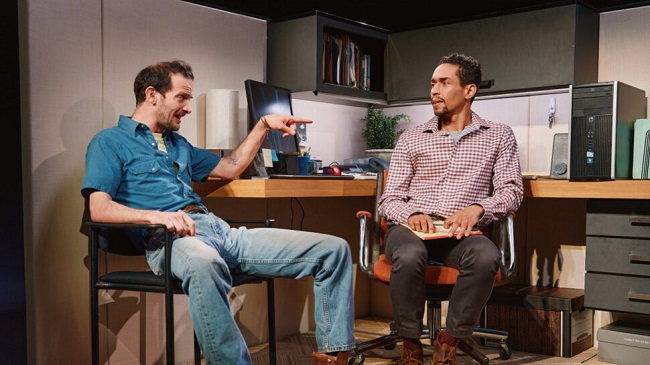Even among non-believers, the suspicious atheist — the true original — has challengers. Recent works have distinguished between “positive” and “negative” atheism, as well as “strong” and “weak” atheism.
Each atheist has their own unique definition for each of these schools of thought. Atheists who hold the position that one is justified in believing that no god exists are referred to as “positive” or “strong,” whereas those who hold the view that one is simply justified in not believing that any god exists are referred to as “negative” or “weak.” Continue reading for more info. about A Case For The Existence Of God Play Review.

A Case For The Existence Of God Play Review
Exactly how is it different to conclude that one should not think that X exists from concluding that one should not believe that X exists? Let’s test it out on the big guy himself, Santa. Is it possible for me to say, “I should not believe that Santa exists, but I should not believe that Santa does not exist”? If I can’t convince myself that Santa doesn’t exist, then I must concede that he very well may.
Someone who has decided that Santa does not exist may find this “weak anti-Claus” viewpoint unconvincing for a number of reasons related to the remote possibility that Santa does exist. Santa’s secret North Pole lair hasn’t been uncovered, his planned activities for Christmas Eve are against the laws of nature, etc.
Watching the two guys in A Case for the Existence of God sit for a long time, I thought about how sedentary my own life has been. What do I do with the majority of my waking hours while I’m slouched over a desk or a couch? What’s the point of working and watching TV if you’re just going to die anyway? That became gloomy.
Equally impressive is Samuel D. Hunter’s 90-minute two-character play, which follows the entwining of two strangers’ lives. Over time, the men’s seated position takes on existential overtones of apathy, stagnation, and despair. The moment one of them stands up in rage is like a lightning bolt tearing through the audience.
There is no religious connotation to the sublime. In “A Case for the Existence of God,” the only time either of the two main protagonists uses the word “God” is in the statement “Oh my God” (which, come to think of it, the two characters exclaim with some frequency – perhaps an example of the crafty symbolic touches with which Hunter typically riddles his scripts.)
Rather, the play’s message, as I understand it from the title, is that one must never give up hope, even in the face of overwhelming adversity. The ability to form bonds with others—both living and dead—is what gives life meaning and gives us reason to look forward to the future.
Last Words
It is crucial for the males to spend time together, any time, even if it doesn’t always seem to have a purpose. Keith said, “Keep playing by the rules long enough,” and in a wonderful and mysterious turn, the play altered our conceptions of how long is “long enough.” One day, Keith, an early music enthusiast, attempts to explain polyphony to Ryan and even performs a little to show him the appeal of two contrasting male voices working together.
Ryan is too intoxicated to notice, so he sleeps through everything, but we’re making some forward progress. It’s not a secret what Hunter is up to. Line after line of melody, he’s showing how he achieves his religious effects. Thanks for reading our article A Case For The Existence Of God Play Review.


